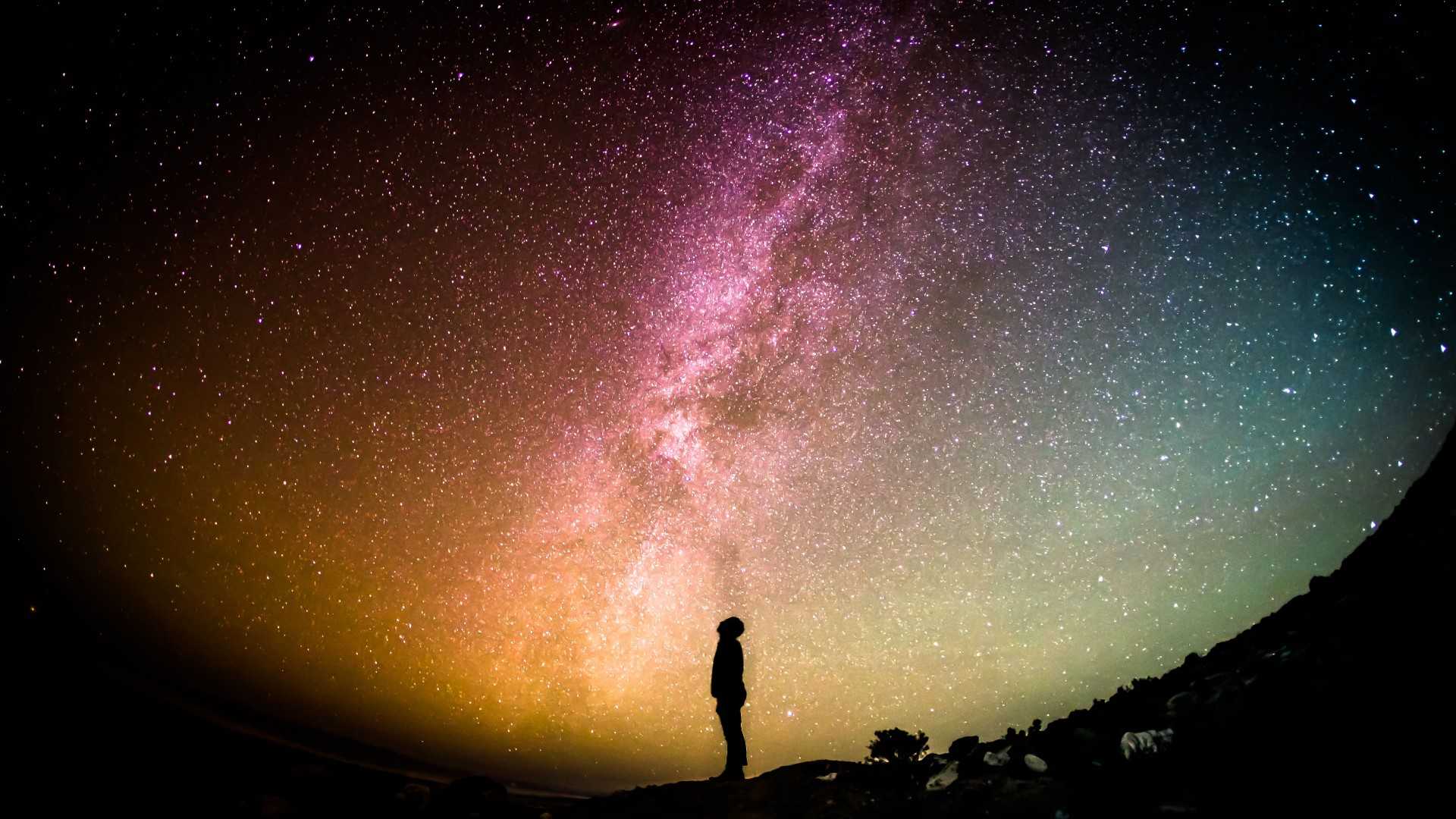The cosmos inspires awe in all of us. From ancient times, we have contemplated the vastness of the universe.
The ancient Jews and Christians did. The Psalmist expressed this sentiment when he wrote,
When I consider Your heavens, the work of Your fingers,
The moon and the stars, which You have ordained;
What is man that You take thought of him,
And the son of man that You care for him?
Yet You have made him a little lower than God,
And You crown him with glory and majesty!
You make him to rule over the works of Your hands;
You have put all things under his feet. (Psalm 8:3–6)
When these ancients looked to the heavens and considered the magnitude of the cosmos, seeing clearly their own smallness in comparison, they were awed that God cared so much for them.
This attitude is similarly illustrated in Isaiah 55:9: “As the heavens are higher than the earth, so are My ways higher than your ways and My thoughts than your thoughts.” As God is indescribably higher than humans (e.g., in that he is omnipotent, omnipresent, omniscient), so are the far reaches of the cosmos higher than the earth. The ancient Jews and Christians understood the universe to be vast beyond measure.
They were not the only ones. The ancient Greeks also considered the universe to be enormous. Ptolemy claimed in his Almagest, “The earth has, to the senses, the ratio of a point to the distance of the sphere of the so-called fixed stars.” That is, the size of the earth is essentially nothing in comparison to the size of the universe.
Around 280 BC, Aristarchos of Samos formulated a triangular measurement method and used it to calculate the sun to be 18 to 20 times further away from the earth than the moon. While today we know the sun to be 389 times the distance from the earth than the moon, people have long believed the universe to be enormous in size—they just didn’t know quite how large.
This understanding of the immensity of the heavens was also widespread in medieval Europe, as historian of science Michael Keas reports in Unbelievable:
For example, the popular medieval work South English Legendary stated that if a man could travel upward at a rate of about forty miles a day, he still would not have reached the stellatum (“the highest heven that ye alday seeth”) in eight thousand years.
In other words, the outermost reaches of the universe extended beyond imagination.
The vastness of the cosmos serves to demonstrate the tremendous power and majesty of God. But this also reveals the uniqueness of mankind in that God created humans and cares for us deeply in the face of such an immense universe.
Some, however, see the size of the universe as indicative of the insignificance of humanity. After seeing the photograph of the earth captured by NASA’s Voyager 1 on February 14, 1990, Carl Sagan said, “Our posturings, our imagined self-importance, the delusion that we have some privileged position in the Universe, are challenged by this point of pale light”—that is, the tiny dot of light that is the earth. As we’ve just seen, the scale of the earth in comparison to the universe isn’t a new concept. Yet while the size of the universe moved the ancient Jews to reflect on the wonder of God’s love for us, many today reach the same conclusion as Sagan. We are, after all, just a tiny speck in the universe. Surely humanity is inconsequential.
G.K. Chesterton offered a response to this line of thinking in his Orthodoxy. He pointed out that mankind is small compared to many things, such as whales and trees. But the size of something alone does not indicate its superiority; mankind is not rendered insignificant due to the size of the cosmos. Rather, humanity is unique due to being made in the image of God.
What other living being has searched the night sky and then pondered his own significance? What other creature has been awed and inspired by the beauty and majesty of the heavens or been curious to explore the far stretches of the universe?
God places a truly extraordinary value on humanity. The Lord and Creator of the universe himself became a man, entering this world—this single planet in this single galaxy that contains billions of planets, in this universe that contains billions, if not trillions, of galaxies. The God who created all of this walked this very earth, died, and rose again—for us! Keep that in mind the next time you look up at the starry host.

